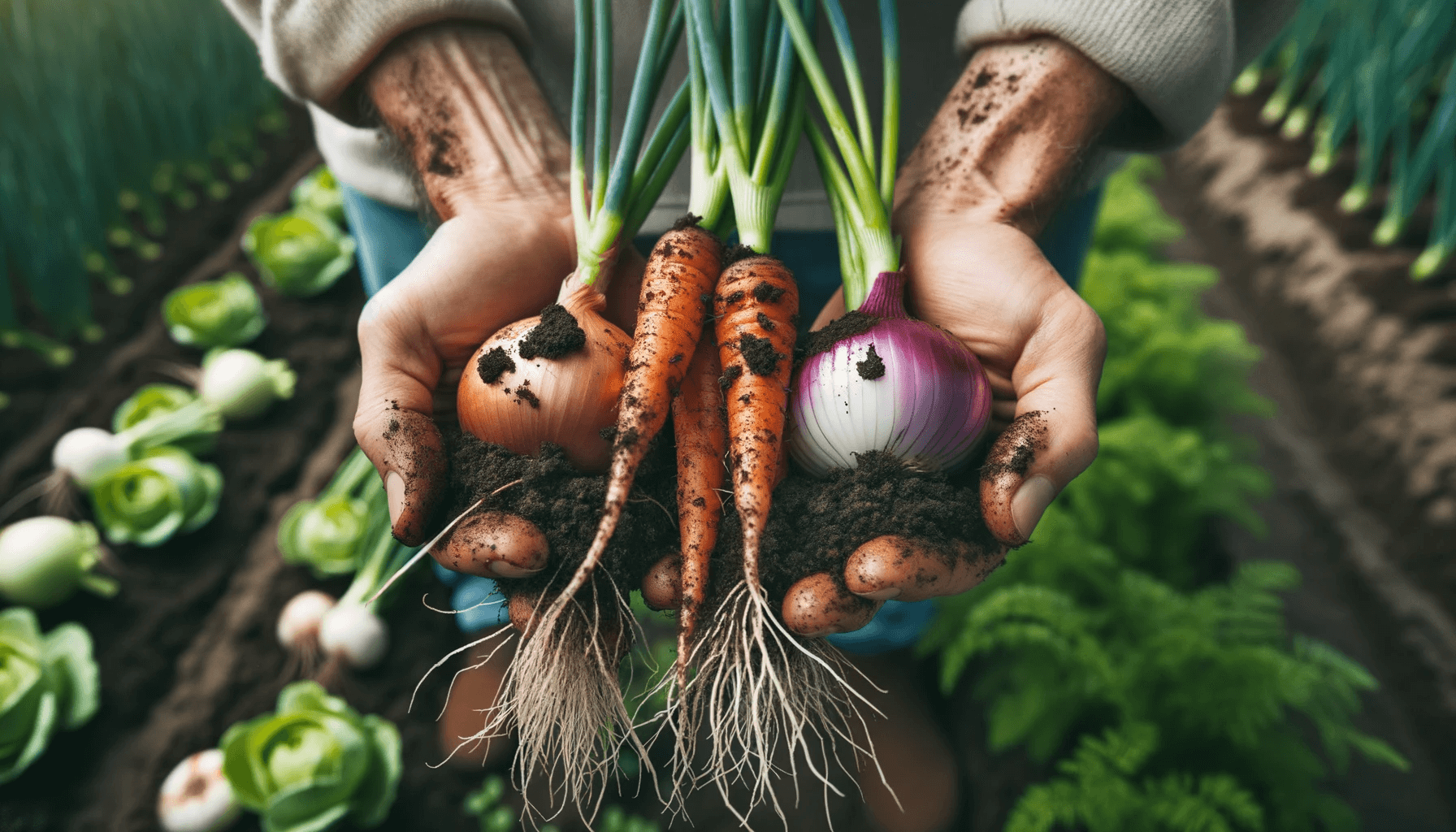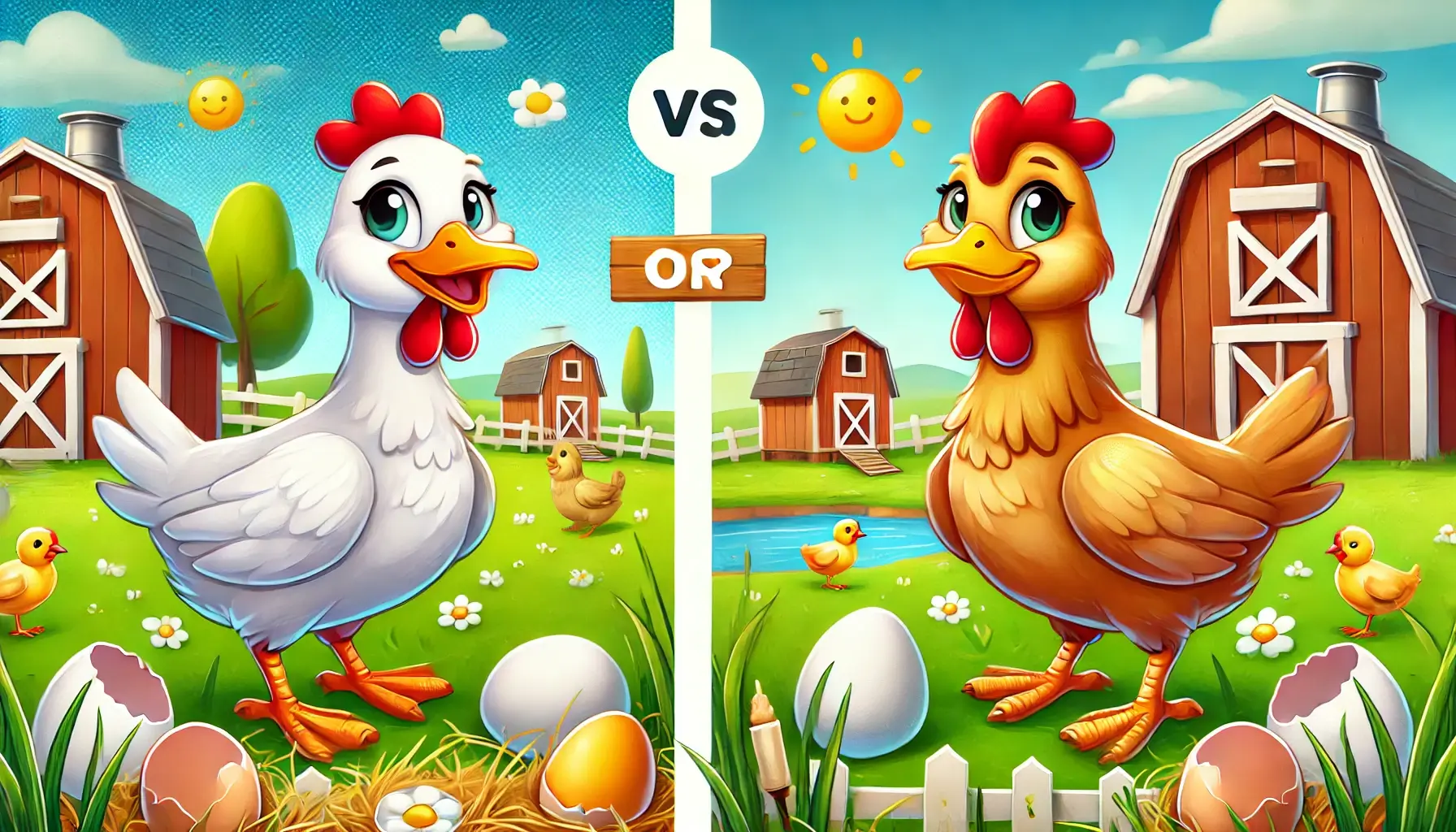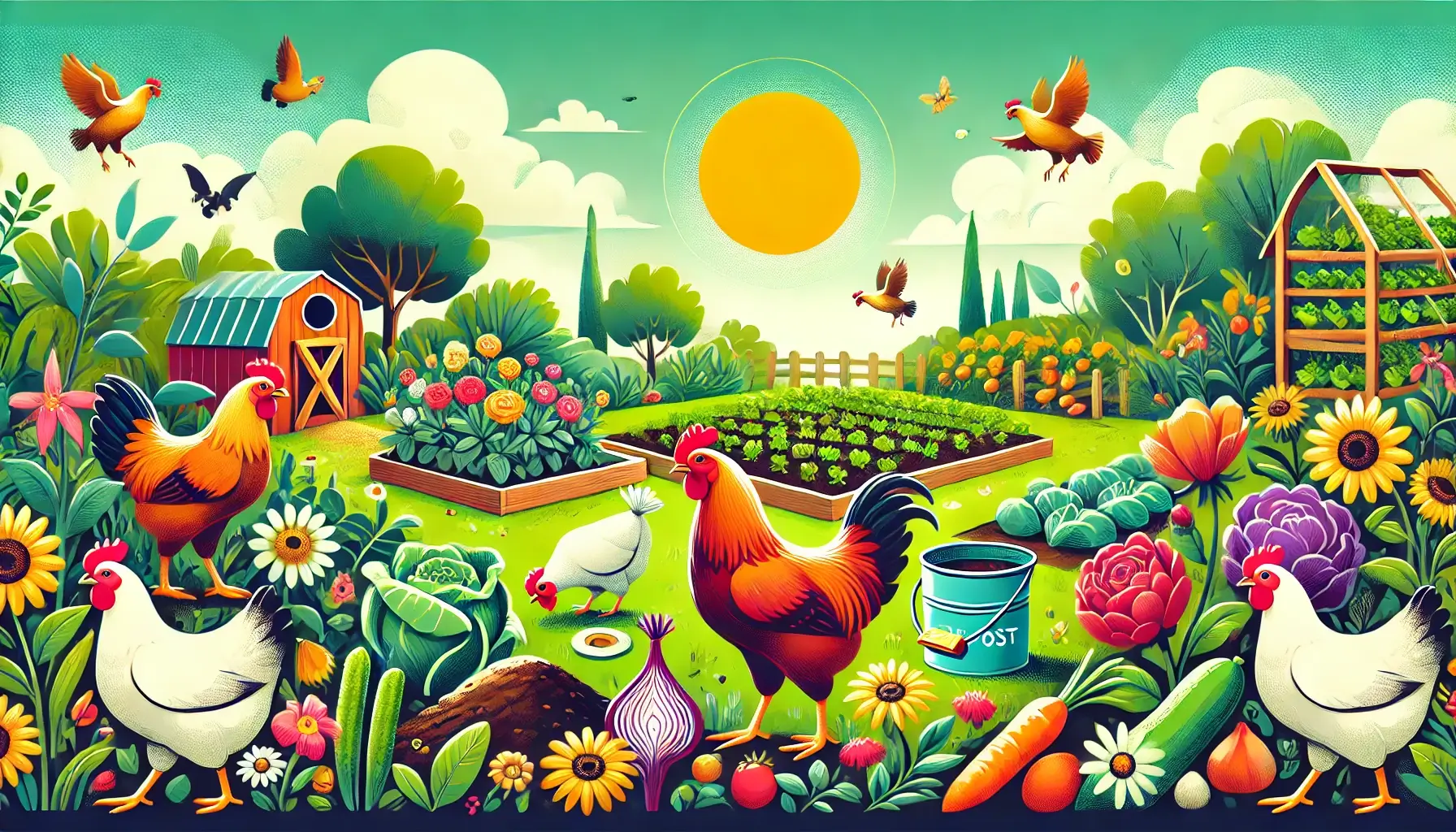Gardening, is by far one of my favourite ways to spend my time. It relaxes me, I am completely present and mindful and most of all it is a rewarding experience to be able to grow your own food, entirely organically and sustainably. Gardening, also a pursuit as old as civilisation itself, has always been about more than just planting seeds and watching them grow. It’s about understanding the intricate relationships between plants and leveraging these relationships for optimum growth. One of these age-old techniques, rich in both history and practicality, is companion planting. In the vast realm of companion planting, the bond between onions and carrots stands as a testament to nature’s wisdom. This article delves deep into this relationship, shedding light on the myriad benefits and providing a detailed guide for gardeners, whether hobbyists or small-scale farmers.
What is companion planting?
Companion planting is the art and science of planting different crops in proximity based on their ability to enhance each other’s growth and yield. This technique taps into the natural strengths and weaknesses of plants, helping them to thrive together rather than compete. Among the multitude of companion pairs that exist, some of which I have successfully tried myself, onions and carrots are particularly noteworthy.
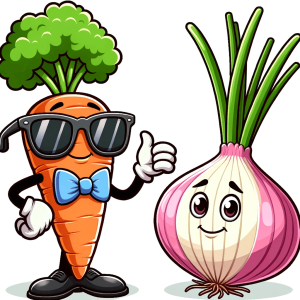
The Synergistic Benefits of Pairing Onions and Carrots in Your Garden
Now lets dig into the benefits of planting onions and carrots together, in the same bed or in the ground.
Enhanced Soil Health and Structure
One of the less celebrated, yet significant advantages of companion planting is the mutual enhancement of soil structure and fertility (which unfortunately in today’s farming is often overlooked), a prime example of which can be observed in the symbiotic relationship between carrots and onions.
Carrots, with their deep taproot system, naturally aerate the soil as they burrow downward in their search for nutrients. This penetration not only helps carrots access the minerals located deeper in the soil but also creates channels that improve the soil’s structure. These channels increase the soil’s ability to absorb water, reducing runoff and erosion, and they facilitate the movement of smaller soil organisms, which are integral to soil health. Additionally, they introduce air deeper into the soil profile, which is essential for beneficial microorganisms that require oxygen. These microbes play a vital role in decomposing organic matter, recycling nutrients, and even aiding in disease control.
In contrast, onions have a relatively shallow root system composed of small, fibrous roots. These shallow roots necessitate less-compacted soil for better growth, which is made possible by the soil-loosening action of the carrots’ taproots. Moreover, the onion’s root system does not extend deep into the soil, which means they absorb most of their required nutrients from the soil’s surface. Consequently, onions and carrots do not compete for nutrients at different soil depths, promoting a harmonious coexistence.
Furthermore, onions contribute to this partnership through their nutrient use. Each plant species has different nutrient requirements, and onions, in particular, are heavy feeders on certain nutrients like sulfur, which contributes to their pungent aroma and pest-repellent capabilities. Carrots, meanwhile, require less sulfur and have a different array of nutritional needs. This difference ensures that these companions do not deplete the soil of its resources in a competitive manner, maintaining the soil’s nutrient balance over time.
In a broader sense, the complementary nature of the root systems of carrots and onions, coupled with their varying nutrient requirements, promotes a dynamic underground environment. This diversity encourages a richer soil ecosystem, fostering the presence of a variety of beneficial organisms—from bacteria that convert atmospheric nitrogen into a plant-usable form, to earthworms that further enhance soil structure and nutrient content.
Natural Pest Deterrence
Natural Pest Deterrence: In the realm of organic gardening, where every element works in tandem to create a balanced ecosystem, the strategic pairing of onions and carrots serves as a remarkable method of pest control. This alliance is particularly effective in warding off their respective nemeses: the carrot fly and the onion fly.
Carrot flies are attracted to their host plants by the scent that carrots emit, particularly when the carrots are thinned and their foliage is bruised. These pests lay eggs in the soil near the carrot plants, and the emerging larvae inflict damage by burrowing into the roots, causing unsightly tunnels and potentially ruining the harvest. Herein lies the importance of the onion: the strong, distinctive odor that onions produce masks the scent of the carrots, confusing carrot flies and effectively making the area less appealing for these pests to lay eggs.
In a similar fashion, onion flies are drawn to onion crops by the unique aroma they exude. These flies pose a threat as they lay eggs at the base of the onions, and the hatching maggots can cause considerable damage to the crop, including decay and potential crop loss. However, the mild scent of carrot foliage acts as a deterrent for onion flies. This odor, although not pungent to human senses, muddles the scent markers that attract onion flies. As a result, the area surrounding the onions becomes less targeted for egg-laying, protecting the bulbs from the subsequent destruction that the larvae would cause.
The mutual protection provided by these vegetables extends beyond just masking scents. The diversity of plants in close proximity also leads to a more complex array of aromatic molecules in the air, making it harder for pests to navigate using their olfactory senses. Additionally, this diversity can attract a range of beneficial insects or “garden helpers,” such as predatory beetles, lacewings, and parasitic wasps, which prey on various garden pests. These beneficial insects add another layer of defense, interrupting the life cycle of pests and further safeguarding the carrot and onion crops.
Moreover, this method of pest deterrence stands out because it reduces the need for chemical interventions, which can have detrimental effects on both human health and the environment. Gardeners who employ this companion planting strategy are able to maintain their crops in a way that sustains their garden’s natural balance and promotes biodiversity.
Efficient Use of Garden Space
In the microcosmic world of a garden, space is a precious commodity. Whether you live in a rural area with a small back yard or in a homestead, we always seek to make efficient use of our space. One of the intrinsic benefits of planting carrots and onions together is in fact the efficient use of garden space attributed to their distinct growth patterns. This strategic use of vertical and horizontal space, known among gardeners as spatial intercropping, allows for optimal utilisation of garden real estate, ultimately leading to increased yield per square foot.
Carrots are characterized by their vertical growth habit, with a long taproot that extends deep into the earth. This feature signifies that the primary spatial needs of carrots are vertical, as they require space beneath the soil’s surface to expand their roots. The vertical space that carrots occupy below ground is usually not used by other vegetables, making carrots ideal for planting alongside various other crops.
On the other hand, onions have a growth pattern that is largely horizontal. They are shallow-rooted plants with bulbs that expand outward just below the soil’s surface and green shoots that primarily require space above ground to grow and receive sunlight. The bulb’s growth demands room around the plant, while the foliage seeks unobstructed access to sunlight, necessitating a clear perimeter at the soil level and adequate space between plants to avoid overshadowing.
When these two plants are grown together, their respective root systems complement each other. The deep, narrow roots of the carrots dive into the soil, allowing the more horizontally inclined onion roots to spread out in the upper soil layers. This arrangement ensures that the plants do not compete for nutrients and water, as their roots inhabit different soil strata. Furthermore, the canopy formed by the feathery carrot leaves and the erect green shoots of onions can coexist in harmony, as neither imposes on the other’s sunlight requirements.
This efficient spatial arrangement allows gardeners to plant more in a limited area, an approach especially beneficial for small garden spaces or urban gardens with restricted square footage. By understanding and implementing these principles, gardeners can prevent the common pitfall of underutilizing space, one of the key aspects that often reduce the productivity of many gardens.
Additionally, this method promotes a healthier growing environment. When the garden space is utilized efficiently, there’s better air circulation around the plants, reducing the likelihood of fungal infections that thrive in humid, stagnant conditions. It also allows for easier access for weeding and harvesting, as the plants aren’t overcrowded and the garden beds maintain better organization.
In essence, the combined cultivation of carrots and onions exemplifies a sophisticated yet simple form of sustainable gardening. It shows that by respecting the natural tendencies and needs of plants, we can create a garden that is both productive and environmentally harmonious, optimising the resources provided by nature itself.
Health Wonders of Onions and Carrots: Nutritional Powerhouses of the Garden
Now let’s delve into some of their benefits. Onions and carrots are household staples, revered not just for their culinary versatility but also for their impressive health benefits. These two veggies, often used as the base for countless dishes, pack a punch in terms of nutrition. Let’s delve into the myriad health advantages they offer.
Onions: More Than Just a Flavour Boost
- Rich in Antioxidants: Onions are packed with antioxidants, most notably quercetin. These compounds help combat free radicals in the body, reducing oxidative stress and the associated risk of chronic diseases.
- Heart Health Promoter: Regular consumption of onions has been linked to reduced blood pressure and LDL cholesterol levels. The sulfur compounds in onions play a pivotal role in thinning the blood, which can prevent the formation of blood clots and promote overall cardiovascular health.
- Bone Density Enhancer: Onions, especially the red variety, have been associated with improved bone density in older women. Their unique blend of nutrients aids in preventing bone deterioration, which can be especially beneficial for post-menopausal women.
- Natural Immune Booster: Onions contain selenium, a trace element that boosts immune function. This, combined with their vitamin C content, ensures that the body is better equipped to fend off illnesses.
- Digestive Aid: Inulin, a type of fiber found in onions, acts as a prebiotic. It provides nourishment for the beneficial gut bacteria, ensuring a healthy and balanced gut flora, which is crucial for digestion and overall gut health.
Carrots: Nature’s Crunchy Nutrient Sticks
- Vision Enhancer: Carrots are synonymous with good eyesight, and it’s not just an old wives’ tale. They are rich in beta-carotene, which the body converts into vitamin A—a vital nutrient for vision. Regular consumption can prevent night blindness and reduce the risk of age-related macular degeneration.
- Skin Health Promoter: The vitamin A and antioxidants in carrots protect the skin from sun damage and can even reduce signs of premature aging. Their vitamin C content aids in collagen production, ensuring skin remains elastic and youthful.
- Cancer Risk Reducer: Carrots contain bioactive chemicals that have been linked to reduced risks of certain cancers, including lung and breast cancer. Their antioxidant properties further aid in warding off potential carcinogens.
- Digestive Health Enhancer: Carrots are a good source of dietary fiber, which aids in digestion by adding bulk to the stool. This ensures regular bowel movements and can help prevent constipation.
- Natural Detoxifier: The vitamin A in carrots helps the liver in flushing out toxins from the body. Moreover, the fiber in carrots assists in cleaning out the colon, ensuring a natural detoxification process.
Harnessing the Benefits: Incorporating Onions and Carrots in Your Diet
Given their health benefits, it’s wise to include both onions and carrots in your regular diet. Here are some simple ways to do so:
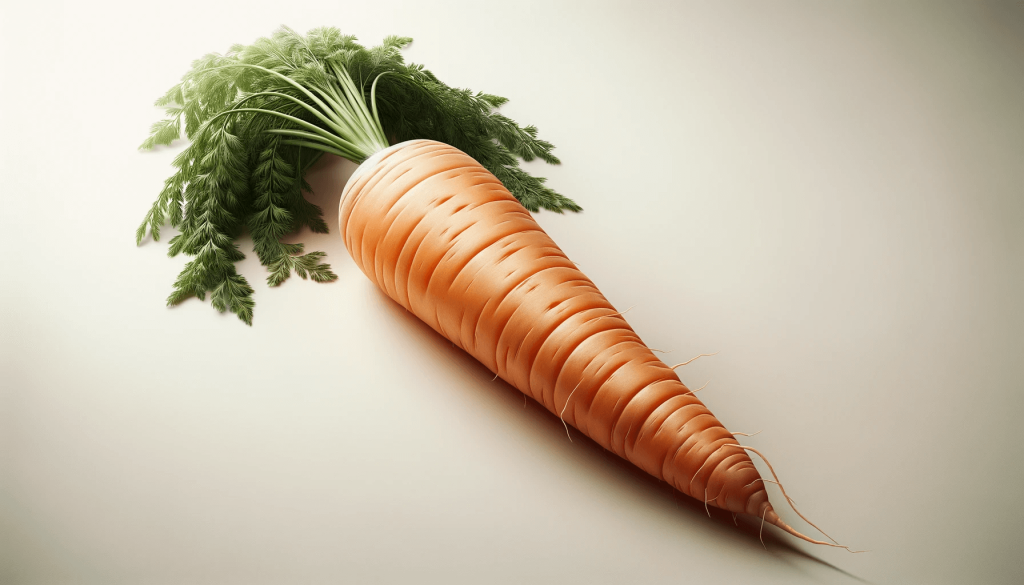
Raw Consumption: While cooking does retain many of their nutrients, eating them raw ensures you get the maximum health benefits. Consider adding raw onions to salads or consuming carrot sticks with a healthy dip. My kids love this!
Juicing: While I am not much of a fan of this (not worth getting the juicer cleaned!), carrot juice is both delicious and nutritious. For an added kick, blend it with other veggies.
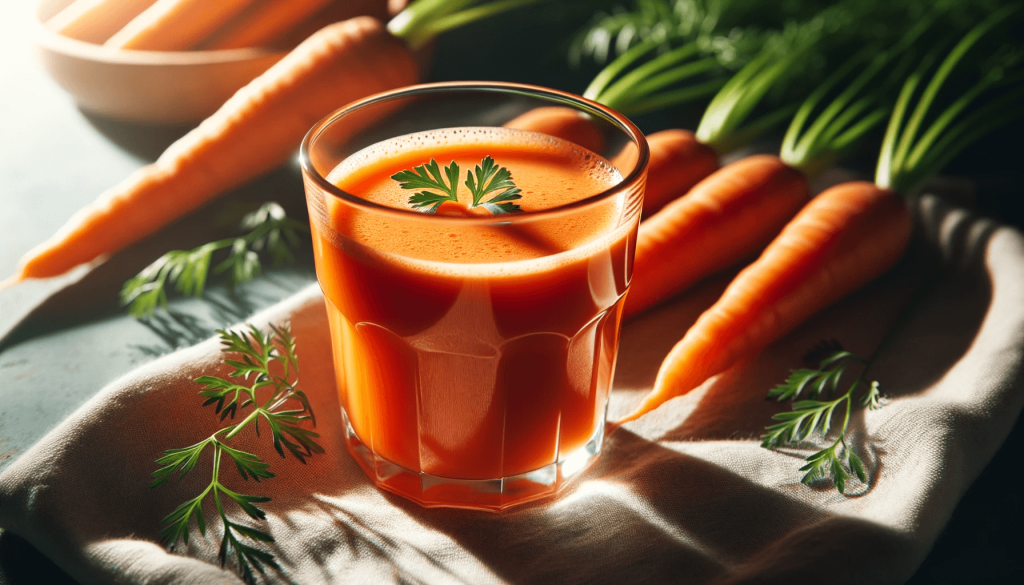
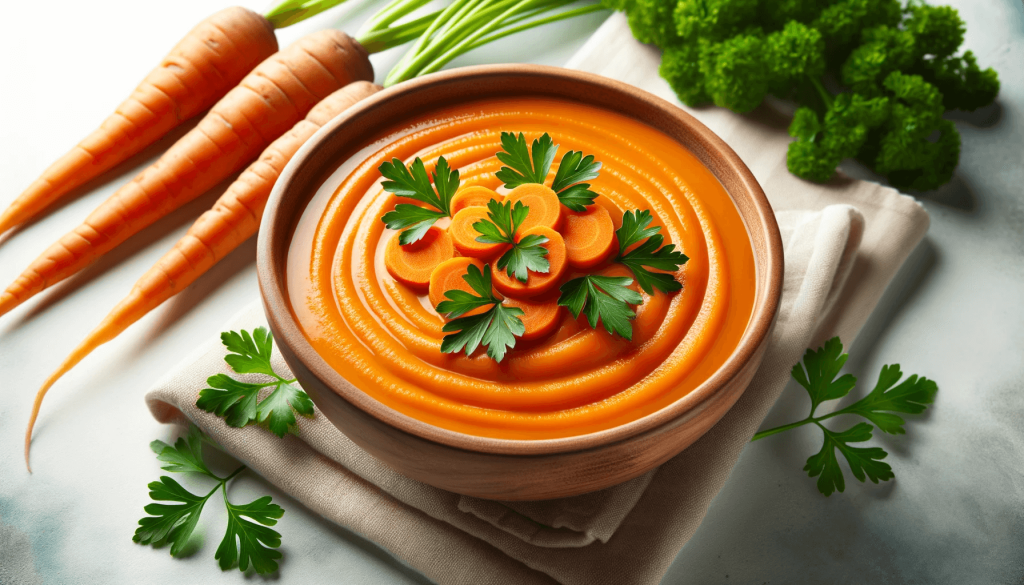
Soups and Stews: Both onions and carrots form the base for many soups and stews. They not only enhance flavour but also significantly boost the dish’s nutritional value. This is my preference, it is so quick to prepare and its a full blown meal!
Roasting: Roasted carrots, my wife’s favourite, perhaps with a sprinkle of onion powder, can be a delightful side dish, retaining most of their nutritional benefits.
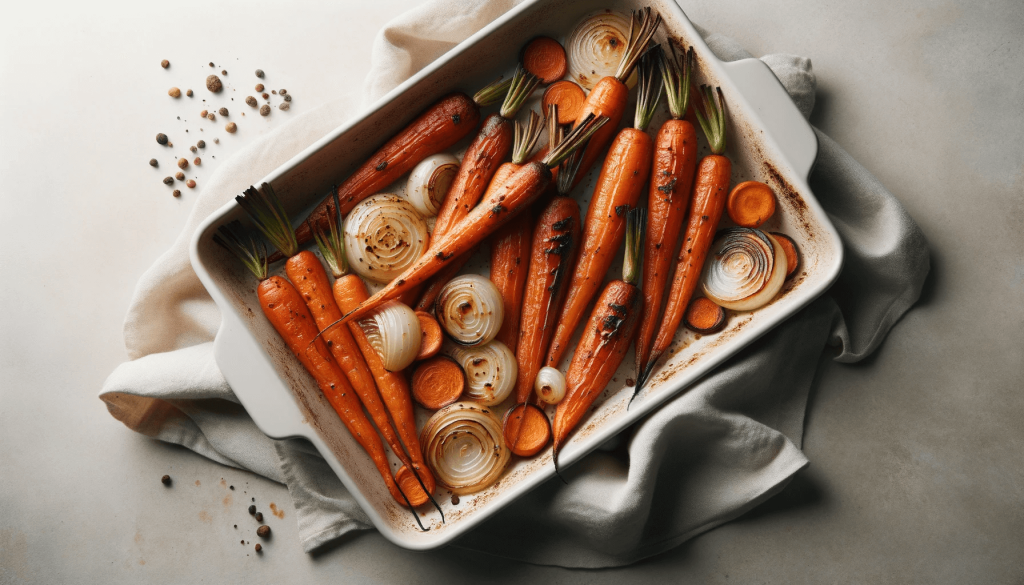
Onions and carrots, while often overshadowed by more exotic superfoods, are nutritional powerhouses in their own right. Their myriad health benefits, combined with their culinary versatility, make them must-haves in every kitchen. By regularly incorporating them into your diet, you take a step towards a healthier, more nourished life. Celebrate these garden gems and let them pave the way for your wellness journey.
The tale of onions and carrots is a lesson in nature’s wisdom and intricate design. By understanding and leveraging these natural relationships, gardeners can create a harmonious environment where plants don’t just survive but thrive. Companion planting, especially the onion-carrot duo, offers a holistic, eco-friendly approach to gardening, free from chemicals and pesticides. It’s not just about reaping a bountiful harvest but about celebrating the beauty of nature’s interwoven tapestry. As you plan your next garden, remember this dynamic duo and the many lessons they bring to the table. Happy gardening!
P.S. Feel free to leave comments, share your experiences or submit a request if you would like to hear more about a specific subject matter.

